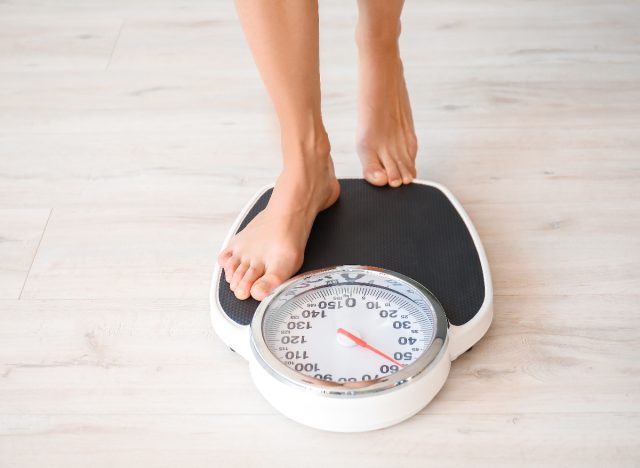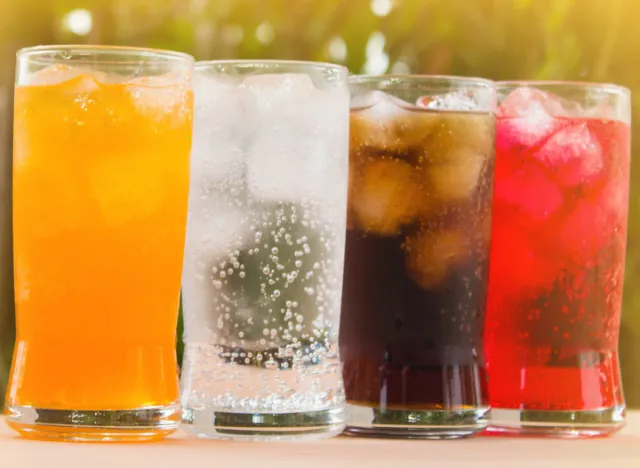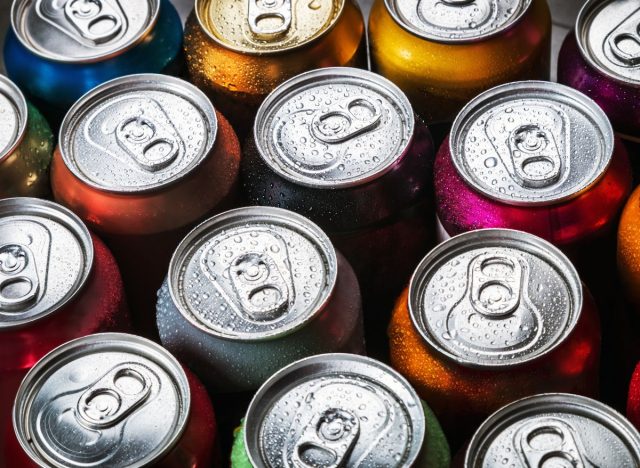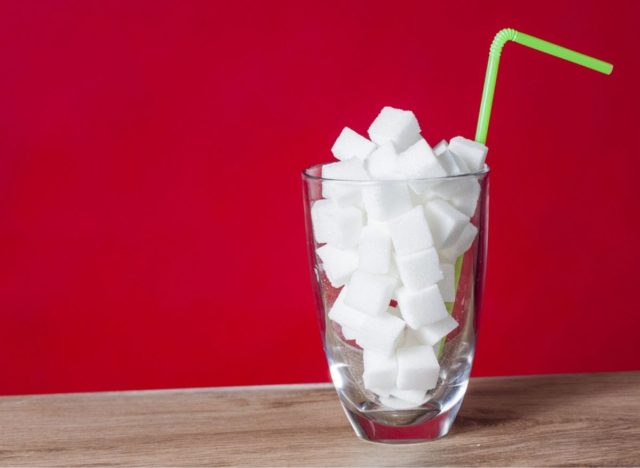Ever since welcoming his daughter last year, Post Malone is making his health a priority and it shows. The rapper has lost 55 pounds and he addressed concerned fans in April. “I wanted to say that I’m not doing drugs, I’ve had a lot of people ask me about my weight loss,” he wrote in an Instagram post. Instead, he’s making healthier choices and quitting bad habits. “I guess dad life kicked in and I decided to kick soda and start eating better so I can be around for a long time for this little angel,” he continued while adding, he’s “never felt healthier.”
On a recent sit down on the Joe Rogan Experience, Post revealed how cutting way back on soda helped him go from 240 pounds to 185 pounds. “Soda is so bad. It’s so good, but so bad,” said Post. “[If] I had a great show, and you know what, I’m feeling a little bit naughty. I’m gonna have myself a Coke on ice.” Turns out soda is really that bad for you and science supports the fact that soda can lead to obesity and is linked to serious health problems. Eat This, Not That! spoke with health experts, who have never worked with Post, but can explain what to know about drinking too much soda and the major long-term issues it can cause.


Post hasn’t given details on how much soda he drank, but he did say he will still have a Coke every now and then but has really cut back. “I take a hard line when it comes to soda—the worst of the worst junk foods out there,” Dr. Stacie Stephenson, a leader in functional medicine, certified nutrition specialist and bestselling author of Glow: 90 Days to Create Your Vibrant Life from Within, states. “I wouldn’t even call it a food. In my opinion, knowing what it does to the body, any soda is too much soda. If there is one thing I believe is harmful even in moderation, it is soda. There is so much research on the links between sugar-sweetened beverages and serious chronic health problems that really, there is no doubt how harmful it is.”


Soda is a big source of artificial sugar and excess calories. By eliminating soda from your diet, it’s possible to lose a significant amount of weight like in Post’s case. “The average serving of a soda would run you about 200-300 calories, the same number of calories as a bagel,” sports performance dietitian Destini Moody, RD, CSSD, LD, says. “You’d probably drink down a soda faster than you could gobble down a bagel, making the soda particularly dangerous. This is because you could consume a large amount of non-nutrition, non-filling calories very quickly, drastically increasing the odds of gaining weight quickly.” She adds, “To compound this, sugary beverages do little to actually quench our thirst as, by the time the sugar hits our gut, it starts to pull fluid out of our system to help dilute the sugar for digestion. This stimulates our thirst later on, and studies have shown that our brain confuses thirst for hunger 70% of the time, meaning soda could indirectly cause you to consume extra calories from food.”


Breaking the grip of excessive soda consumption can be challenging, mainly due to its addictive nature. It’s a tough vice to give up for many. Dr. Stephenson explains why it’s not easy to let go of soda. “Because they are sweeter than real whole foods like fruit, they are highly palatable. Both your brain and your taste buds want to experience that unnaturally sweet experience again and again because it’s stimulating. You want another ‘hit,’ so it can feel like an addiction to keep wanting that ‘high’ you get from drinking a soda. But make no mistake—that ‘high’ is not how your brain is designed to react to food, so like an addictive drug, you may keep wanting more and more. Sugar is a slippery slope.”
READ RELATED: Fogging Of The Brain Or Brain Fog: How StemRx Helps Combat Mental Fatigue


Besides causing weight gain, drinking too much soda often leads to other serious health issues. According to Dr. Stephenson, “There is quite a lot of research linking soda consumption with serious chronic health issues, from high blood pressure and heart disease to rheumatoid arthritis. Perhaps the biggest risks and most clearly proven associations are with metabolic disorders like diabetes and obesity, and liver disease. Most recently, a large 2023 study looked at nearly 100,000 women over an average of more than 20 years and showed that women who drank 1 or more sugar-sweetened beverages daily had a significantly higher incidence of liver cancer and death from liver disease than those who drank 3 or fewer sweetened drinks per month. Older research that surveyed multiple studies concluded that the association between soda consumption and metabolic issues like diabetes and obesity was ‘clear and consistent.'”


While many think switching to diet soda is a better option health-wise, it’s really not. The risks from diet soda are there, but they are somewhat different risks than with regular soda,” says Dr. Stephenson. “Diet soda is associated with heart disease risks as well as a disruption in the normal healthy functioning of the gut microbiome, which can lead to other issues, including gastrointestinal problems and even immune system dysfunction. A recent study linked diet soda to stroke risk. Diet soda is also, counter-intuitively, related to obesity. Researchers theorize this could be because of the microbiome effects, the increased craving for sweet foods, or metabolic effects that increase the risk of diabetes. The bottom line: Even though it has no calories, diet soda is still harmful to health and both regular and diet soda are linked with diabetes and obesity, so don’t be fooled into thinking diet soda is a weight loss aid.”


The added sugar in soda is really unhealthy when consumed in excess and unlike the natural sugars found in foods like fruit. Dr. Stephenson explains why. “First of all, the sugar in fruit is not refined and is wrapped up in fiber,” says Dr. Stephenson. “When you eat fruit, the fiber slows down how quickly the sugar gets into your bloodstream, so your blood sugar rise may be more gradual, resulting in the release of less insulin. Fruit also comes naturally ‘packaged’ with vitamins and other nutrients. Even more significant, the sugar in soda is usually high fructose corn syrup, which is a highly refined, concentrated source of sugar. No natural whole food is as sweet as soda (although fruit juice and dried fruit come close). The effect of a soda on your blood sugar and insulin is much more dramatic and damaging to your body than eating a whole piece of fruit or a bowl of berries.”
The decision to cut back on soda is a healthy lifestyle choice, but that doesn’t mean it’s easy. Here are some tips on how to start reducing soda from your diet. “My advice for quitting any habit is the Rule of Halves. Instead of going cold turkey, which can lead to headaches, irritability, and other unpleasant side effects, begin by cutting your sugary beverage consumption in half,” Dr. Stephenson suggests. “If you usually have four sodas a day, see if you can cut it down to two. Stay at two until that begins to feel like your new normal. Then, try cutting your consumption in half again, down to one, and again, stick with one until that feels easy. Then you can cut it down to half, or have a soda every other day. Then maybe you go for three or four days, and then down to once a week. Keep this up, and before long, you’ll discover you don’t need that soda anymore. (That goes for diet soda, too.)”











